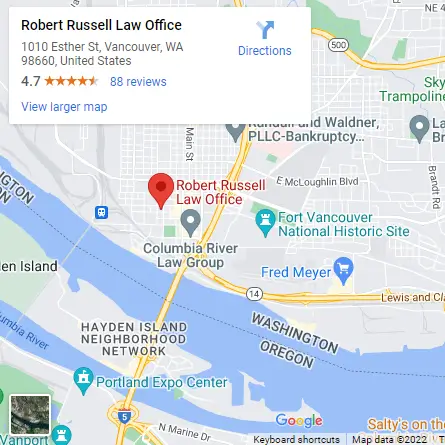Inheritance accounts for a significant proportion of wealth, both within the United States and throughout many other parts of the world. What heirs inherit, in a way, contributes to inequality because there is a tendency to entrench wealth within specific families or certain social classes. Most of the time, inheritance is divided among surviving family members of the deceased person, except if the decedent disinherited a certain family member.
For such to be transferred or distributed to your surviving spouse, children, grandchildren (or any heir appointed) when you pass away, estate law must be taken into account. A competent local attorney can explain to you in detail the different types of estate planning documents. An experienced Vancouver estate planning lawyer can likewise brief you on how legal documents drafted can comply with relevant state law.
What is an estate?
 The definition of the term used today is broader. It is not only limited to a villa or mansion of a prominent family or historical figure, or multi-acre real property of the rich and famous. At present, estate refers to the economic valuation of one’s interests, investments, and assets. While a common example would be cash and land or other real estate, it covers everything that comprises the net worth of a person. Non-tangible examples would include contents of a bank account and financial securities. Legally, the term would also include other physical assets owned by an individual. Aside from personal property and belongings, it may refer to antique furniture sets, paintings, and modern collectibles, among others.
The definition of the term used today is broader. It is not only limited to a villa or mansion of a prominent family or historical figure, or multi-acre real property of the rich and famous. At present, estate refers to the economic valuation of one’s interests, investments, and assets. While a common example would be cash and land or other real estate, it covers everything that comprises the net worth of a person. Non-tangible examples would include contents of a bank account and financial securities. Legally, the term would also include other physical assets owned by an individual. Aside from personal property and belongings, it may refer to antique furniture sets, paintings, and modern collectibles, among others.
In financial terms, estates pertain to any asset of value. As such, in an overarching sense, they would refer to the net worth of an individual, or the total of one’s assets minus any liabilities from creditors.
Estate taxes, drafting a will, and trust documents
Partly due to the stagnation in the movement of wealth associated with inheritance, the total value of one’s estate is generally subject to estate tax or inheritance tax, as required by relevant tax laws. These can be notoriously exorbitant, and it is not uncommon for someone who inherited substantial assets to sell a portion of it to settle inheritance taxes.
Because of this, a real estate lawyer supervising a testator making a will would often suggest ways to reduce taxes. One of these is to establish trust. Some people are not aware that a last will and testament is not the only way to distribute one’s assets. Setting up a trust is preferred by some since they generally provide better asset protection. They are also useful in avoiding probate. The probate process is quite complicated, and an estate attorney who specializes in wills and trusts can provide legal counsel on how you can avoid probate proceedings.
Supervision from a reliable Vancouver estate planning attorney is crucial when drafting wills or establishing a trust. Before you create a will and make decisions on heirs you want to appoint, make sure to get the legal services of a trusts and estates law expert. Otherwise, your loved ones could face unnecessary stress when you die. Will and trust estate law can be quite complex, and such a legal matter must be taken seriously.
Estate assets are often quite significant, and having an estate lawyer assisting you and providing legal help as you write a will can better ensure its validity. Get in touch with a law office whose specializations are estate planning services and legal representation.
For questions on last wills and testaments, living wills, living trusts, succession, or power of attorney, give us a call. Contact our Vancouver estate planning attorney at Robert Russell Law Office to consult with reliable estate planning lawyers.







